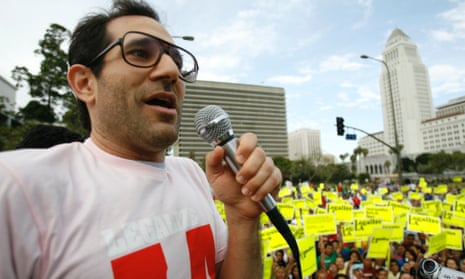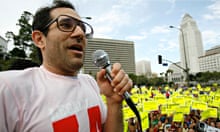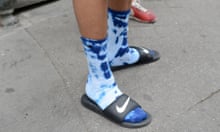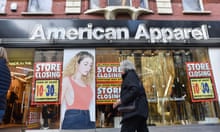It’s not normal for the board and shareholders of a publicly owned company to have to watch a video on YouTube of their chief executive dancing naked in front of female colleagues and wonder what to do about it.
It’s not normal for the chief executive of a public company to face repeated, public and sleazy allegations of sexual misconduct even if the allegations are denied, dismissed, settled or sent to arbitration.
And it’s not normal for a group of about 30 executives at a company to believe that one of them is so central to the company’s success that they immediately ask the board to reconsider their decision to fire him.
But when that chief executive is American Apparel founder Dov Charney, the word “normal” – by his own admission – doesn’t always apply. Charney paints himself as above the fray of normal humanity, an exception to the usual rules.
“I was born strange,” Charney said in an American Public Media radio interview in June. In the same interview, Charney confided: “My biggest weakness is me. I mean, lock me up already. It’s obvious. Put me in a cage, I’ll be fine. I’m my own worst enemy. But what can you do. I was born strange.”
“Sex is inextricably linked to fashion and apparel,” said Charney in the interview. “And it has been and always will be. And our clothing is connected to our sexual expression.”
American Apparel’s board finally got sick and tired of strange and weird and kicked Charney out of the company he started.
Charney had been suspended by the board in June for “alleged misconduct and violations of company policy”; a special board committee oversaw an investigation by FTI Consulting into the allegations against him.
Based on this investigation, the special committee decided “it would not be appropriate” for Charney to be reinstated as chief executive.
Charney had been retained as a consultant to American Apparel while under suspension as chief executive, but this arrangement has now been terminated. Still, Charney and other investors in American Apparel who have been his allies in the past are still major shareholders in the company, so it is unlikely the troubled fashion retailer has seen the last of the controversial Montreal-born entrepreneur.
But, for now at least, Charney is out and American Apparel is moving on.
The company has appointed respected fashion-industry veteran Paula Schneider as chief executive starting on 5 January. It hopes that after the unsavory headlines attracted by Charney, Schneider can bring stability and maturity to the edgy retailer famous for advertising that pushes the limits of acceptable sexuality.
“This company needs a permanent CEO who can bring stability and strong leadership in this time of transition, and we believe Ms. Schneider fits the bill perfectly,” said David Danziger, co-chairman of the board.
Schneider will need all her storied skills to turn around American Apparel. Under the leadership of Charney, its stock price, as high as $15 seven years ago, has been bumping along the basement of the stock market at well under a dollar. The company has posted roughly $300m in net losses since 2010, according to Bloomberg.
Schneider’s sober business credentials contrast with Charney’s self-styled sleaziness and edginess.
The allegations against Charney have included claims that he allowed an American Apparel staff member to post nude photographs on the internet of a former female employee who had taken legal action against him and that he misused company funds.
In his CNBC interview Charney was asked if he saw himself as a “Steve Jobs meets Hugh Hefner” kind of chief executive, even though he later played down his comparison to Jobs.
“That wouldn’t be for me to say, but I respect both of those individuals as having altered American consciousness …
“I think Hugh Hefner did a lot of great things for America. He took on a lot of great issues … and some of his work I think is a very important part of our culture today … I like what he did.”
Before Charney put American Apparel on the stock market, he was asked by TV interviewer Charlie Rose about going public – a move that would require accountability to a wide number of people. His answers were revealing.
“I wanna do it on my own terms,” said Charney. “I don’t want to institutionalize the company … I don’t mind keeping very accurate and very credible books and records … I want investors to believe in the company; I’m not trying to fool around with that.
“But I also don’t want to be told what to do, or how our ad campaign should be or what our political positioning should be – at all.”
There’s a limit to this kind of free-market don’t-tell-me-what-to-do view. Companies aren’t just about their chief executives. They’re also about their workers, their ethics and their contribution to society. Silicon Valley, for one, is full of such iconoclasts, who are more than happy to take the immense wealth that going public brings them – but then often ignore the demands and rights of the investors who now own their companies and the regulators who try to keep them honest.
These types often care little for what society deems normal.
So, the sleaze apart, Charney may just be the latest chief executive of a once-private business that has struggled with the grown-up responsibilities of running a public company with shareholders and regulators to keep happy.
Most of them, though, manage to keep it in their trousers, at least in public. And perhaps they will again.











Comments (…)
Sign in or create your Guardian account to join the discussion